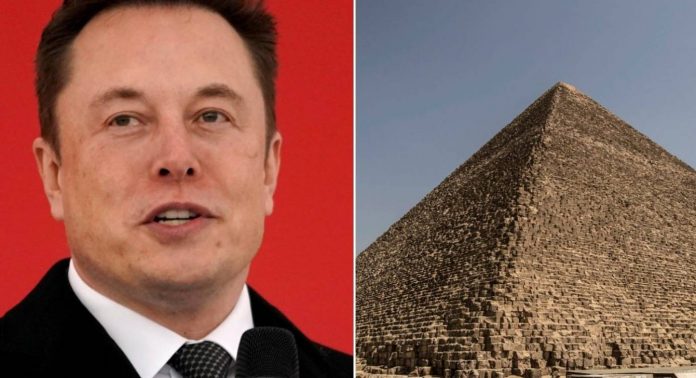Egyptian public figures, Minister of International Cooperation Dr. Rania Al Mashat and renowned Egyptologist Dr. Zahi Hawass, denounced Elon Musk’s comment that the pyramids were built by ‘aliens’ on social media.
Elon Musk, American entrepreneur and businessman who founded SpaceX in 2002, tweeted on Friday that the pyramids were built by “aliens”.
In another tweet, he said that King Ramses II was “cool” using the emoticon, and then shared links from Wikipedia and BBC that explained the origins of the pyramids.
Aliens built the pyramids obv
— Elon Musk (@elonmusk) July 31, 2020
Dr. Rania Al Mashat responded back to the tweet on Saturday, saying, “I follow your work with a lot of admiration. I invite you and Space X to explore the writings about how the Pyramids were built and also to check out the tombs of the pyramid-builders. Mr Musk, we are waiting for you.”
I follow your work with a lot of admiration. I invite you & Space X to explore the writings about how the pyramids were built and also to check out the tombs of the pyramid builders. Mr. Musk, we are waiting for you 🚀. @elonmusk https://t.co/Xlr7EoPXX4
— Rania A. Al Mashat (@RaniaAlMashat) August 1, 2020
Egyptologist and former minister of antiquities Zahi Hawass also responded in a one-minute video, noting that Musk’s claims are “complete hallucination,” and added that there are inscriptions inside the Great Pyramid of the “workmen who built the pyramids, and I found the tombs of the pyramid builders, that tells everyone that they were Egyptians and not slaves.”
“All the tombs around the Great Pyramids mentioned the Khufu Pyramid and the king himself,” Hawass said in the video.
In a Harvard Magazine article, ‘Who Built the Pyramids?” by Jonathan Shaw, archaeologist Mark Lehner wrote about the ‘social apparatus’ that helped mobilize Egyptian workers to build the pyramids.
He noted that, “people were not atomized, separate, individuals with the political and economic freedom that we take for granted. Obligatory labor ranges from slavery all the way to… a strong sense of community obligations. If you are a young man in a traditional setting like that, you may not have a choice.”













